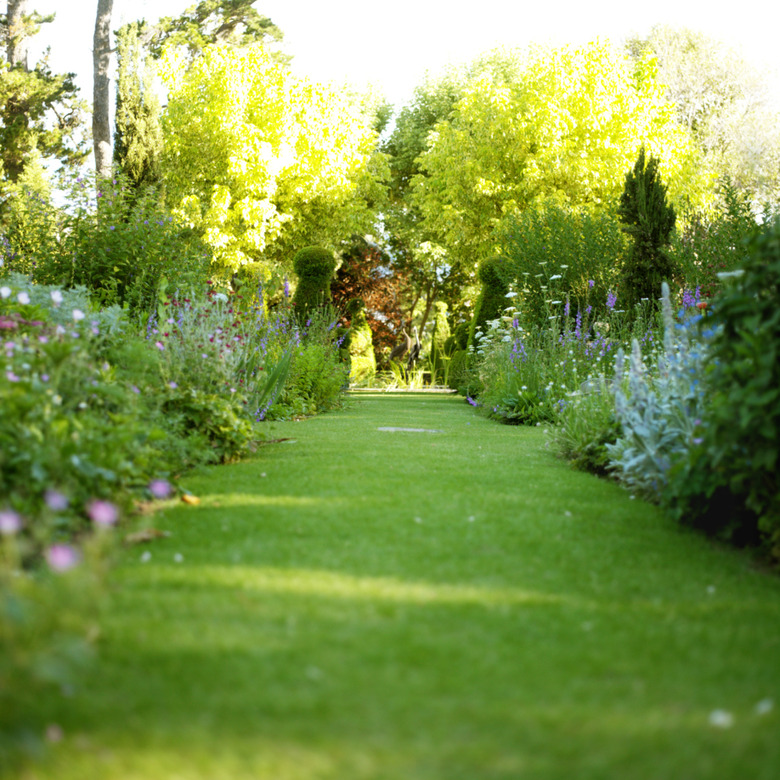The Effects Of Bone Meal On Plants
Bonemeal adds the phosphorous necessary for root development and seed ripening, promoting strong, healthy root systems and beautiful blooms. Phosphorous is present in most garden soils, however, and should only be added if a soil test shows a depletion.
Bonemeal adds the phosphorous necessary for root development and seed ripening, promoting strong, healthy root systems and beautiful blooms. Phosphorous is present in most garden soils, however, and should only be added if a soil test shows a depletion. Bonemeal is an organic, slow-release fertilizer, so there are no immediate effects or results. It is primarily recommended for roses and bulbs.
Bonemeal Fertilizer
Bonemeal is steamed and ground animal bones, but today, overprocessing has removed much of its nutritional value. Though not a complete fertilizer, bonemeal is a good source of phosphorus. Fertilizer packages contain three important elements listed according to weight ratio in the order of nitrogen (N) , phosphorus (P) and potassium (K). The phosphates or phosphorus usually amounts to 10 percent to 13 percent, depending on the brand of bonemeal. It is also possible to purchase packages of bonemeal without the other nutrients. This may be worthwhile if you are planting a rose hedge or several roses in the garden.
- Bonemeal adds the phosphorous necessary for root development and seed ripening, promoting strong, healthy root systems and beautiful blooms.
- Phosphorous is present in most garden soils, however, and should only be added if a soil test shows a depletion.
Beneficial Effects
While bonemeal is used mainly for bulbs and roses, it can be used for any plants that need phosphorous released slowly into the soil or where a soil test shows a depletion. Organic bonemeal enriches the soil with micronutrients that stimulate the root systems, resulting in floriferous plants with colorful blooms. The plants have more vigor and appear healthier. A phosphorous deficiency causes stunted growth, and the plants are slower to develop blooms.
Negative Effects
While bonemeal contributes those micronutrients to the soil, your garden soil will likely already have enough phosphate. Phosphate depletion usually occurs in agricultural soils. Too much fertilizer — even organic fertilizer — will cause soil to become less healthy or even neutral. A soil test is highly recommended because an excess of bonemeal phosphate will upset the natural balance of organisms in the soil. The excess can cause the mycorrhizal fungi activity at the plant's root level to decline. This fungi works with the root system, and the plant will weaken as the root system is unable to take up nutrients in the soil.
- While bonemeal is used mainly for bulbs and roses, it can be used for any plants that need phosphorous released slowly into the soil or where a soil test shows a depletion.
- This fungi works with the root system, and the plant will weaken as the root system is unable to take up nutrients in the soil.
Application
If your soil is depleted of phosphate and needs a boost, begin by adding bonemeal at planting time. For bulbs, simply dig the hole and add a tablespoon of bonemeal to the bottom of the hole before planting. Apply bonemeal to established bulbs in early spring before bloom. Scatter a tablespoon around the crown of the bulb and dig it in lightly with a hand cultivator. When planting new roses, place 1/2 cup of bonemeal in the bottom of the hole and mix well with the soil. It doesn't need further application because it is slow to break down and already placed at the root system.
